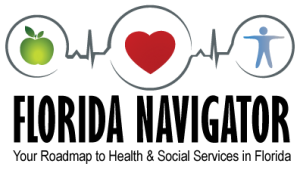Your Right to Appeal
The Savvy Senior
By Robert Goodman, MSW
Being a good health care consumer means knowing your rights and advocating for yourself. Whether you are applying for or currently receiving services you have the right to appeal if you disagree with a coverage or payment decision made by Medicare, your Medicare plan, Social Security, or any government agency. Different programs and services have different procedures for appeals. The time allowed for appeals also varies. HMO patients also have the right to appeal adverse decisions.
Hospital patients have the right to appropriate care and appropriate discharges. A person cannot be discharged into an unsafe environment, such as being sent home where they cannot take care of themselves or no one is available to care for them.
A Medicare beneficiary has the right to appeal a hospital discharge if he or she feels too sick to leave. A hospital will provide “An Important Message from Medicare,” which explains how to appeal the discharge. Medicare beneficiaries can call Florida Medical Quality Assurance, Inc (FMQAI) at 800-844-8754 for an appeal. FMQAI staff members will look at the medical record to see if the beneficiary should stay in the hospital. The beneficiary will be informed of the decision. The Medicare beneficiary does not have to leave the hospital. The Medicare beneficiary does not have to pay for the extra days in the hospital while FMQAI staff members review the medical record.
A Medicare beneficiary has the right to appeal a discharge if he or she does not agree with the discontinuation of skilled services (skilled nursing care, hospice, home health care). The beneficiary must be given a letter with the planned discharge date explaining how to appeal the discharge. Once the beneficiary receives the letter, he or she can call FMQAI at 866-800-8768. An FMQAI physician will look at the medical record to see if the services should continue. The Medicare beneficiary will be informed of the decision.
If a Medicare beneficiary is in an HMO, he or she has some additional Medicare rights. If the beneficiary feels he or she cannot get the needed care, he or she has the right to appeal to the HMO. The Medicare beneficiary can appeal things like denials for: referrals to a specialist, approval for tests (like x-rays or blood tests), or payment of a bill.
The HMO has information about how to start the appeal process. A Medicare beneficiary who feels he or she may get worse by waiting too long can ask for an expedited appeal. This means the HMO must make a decision about the appeal within three calendar days. A Medicare beneficiary who needs an expedited appeal must be sure to ask for it.
If a Medicare beneficiary has a concern or is not satisfied with the quality of care received, he or she can call the FMQAI Florida Medicare Beneficiary Complaints Helpline at 800-844-0795. You may also download a quality of care complaint form English or Spanish to complete and fax to 813- 354-0737, or mail to: FMQAI, 5201 West Kennedy Boulevard, Suite 900, Tampa, Florida 33609, Attention: Beneficiary Complaints.
The above information is from www.fmqai.com and www.medicare.gov. For more information on your right to appeal a Medicare related decision call 800.MEDICARE (633-4227).
Here are ten steps to help you become an effective self-advocate:
- Believe in yourself
- Realize you have rights
- Discuss your concerns with your service provider
- Get the facts in writing
- Use the chain of command to solve a problem-ask to speak to a supervisor if an issue wasn’t resolved to your satisfaction
- Know your appeal rights if services are denied
- Be assertive and persistent, not aggressive
- Outline your concerns and be a good listener
- Ask for help from other agencies
- Follow-up. Be sure you’re getting the service that meets your
needs…and say thank you


